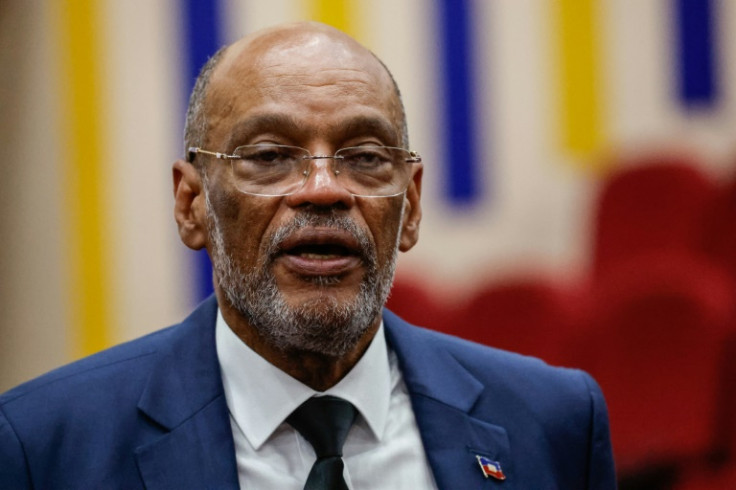
Ariel Henry formally resigned as prime minister of Haiti on Thursday, paving the way for the formation of a new government in the violence-ridden country.
Henry's resignation was a key step agreed on with the transitional council tasked with overseeing the country's road to new elections. He has already been replaced by Michel Patrick Boisvert, who will hold the position in an interim manner.
According to The Associated Press, Henry presented his resignation in a letter signed in Los Angeles on April 24. He had been unable to return to Haiti after leaving earlier this year, as gangs increased their attempts to topple the government and attacked key infrastructure such as the country's main airport in Port-au-Prince.
The transitional council was installed on Thursday at the National Palace and is now expected to set the agenda of a new Cabinet. The council is formed by nine members, seven of whom have voting powers.
The nine members of the transitional presidential council were installed this morning at the National Palace.
— Jake Johnston (@JakobJohnston) April 25, 2024
Ariel Henry has formally resigned. pic.twitter.com/Iy66Gsww1c
According to The Miami Herald, council members have given themselves broad powers over the incoming government, including the ability to fire the next prime minister, something that usually falls under the purview of parliament.
They can also name people to a series of newly created agencies, including a national-security commission. And most importantly, it will have to pave the way to hold a presidential election in 2026. The country hasn't had a presidential election since 2016.
The council also had to commit to accepting the deployment of an international security force tasked with neutralizing the gangs that now control most of Port-au-Prince.
Violence again escalated in the country this week, with different outlets reporting arson and heavy gunfire in the capital. Reuters described the Lower Delmas area as a "battlefield between police and armed gangs," with automatic gunfire being heard near the National Palace.
The renewed violence has exacerbated the already precarious humanitarian situation in the country, where more than 2,500 people have been killed or injured between January and March.
The Associated Press has described life in Port-au-Prince as a "game of survival," with Haitians scrambling to stay safe and alive. Much of that involves finding food and water, as vital resources run thin and humanitarian organizations are increasingly unable to meet the needs of thousands of people.
© 2024 Latin Times. All rights reserved. Do not reproduce without permission.







